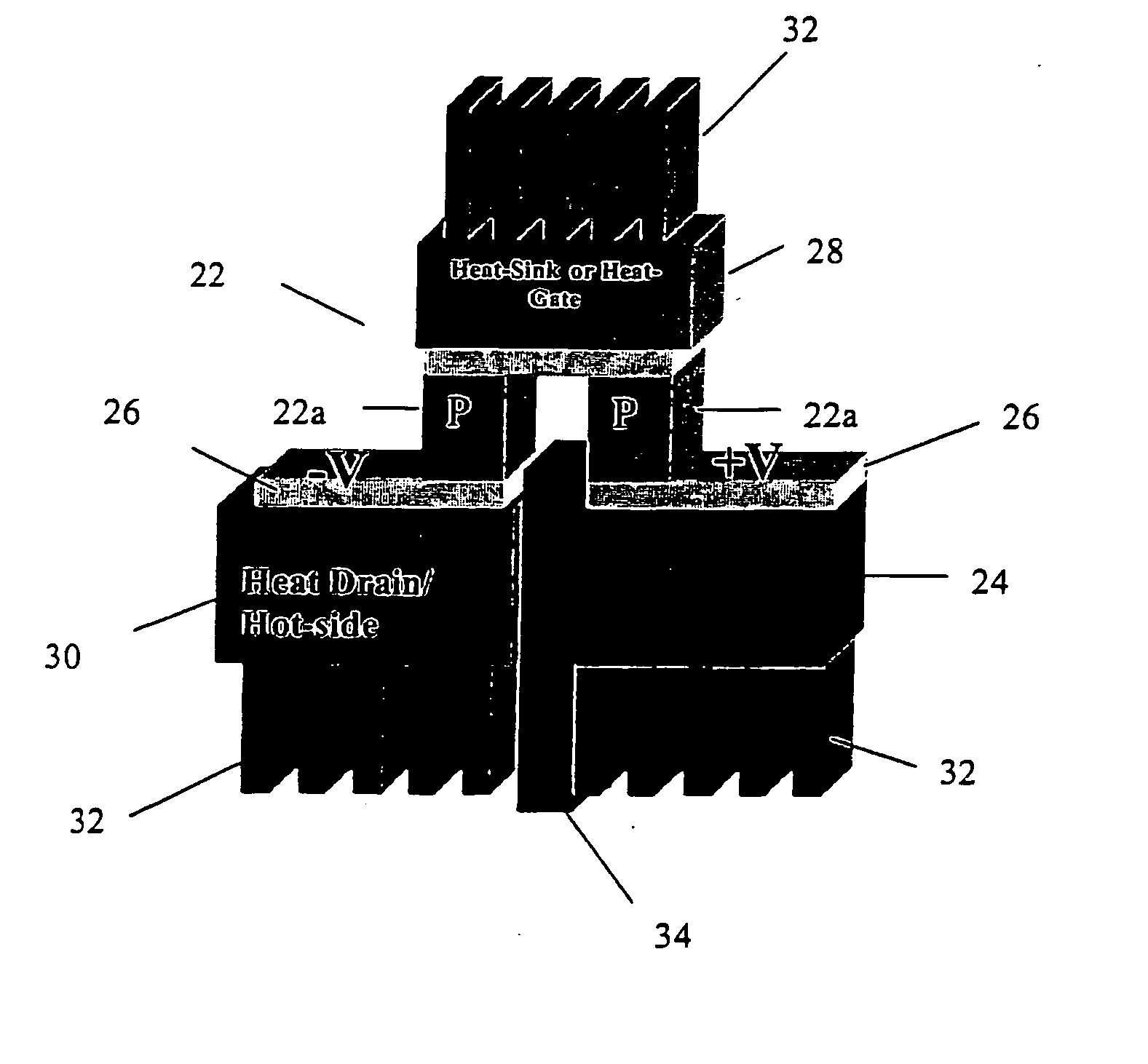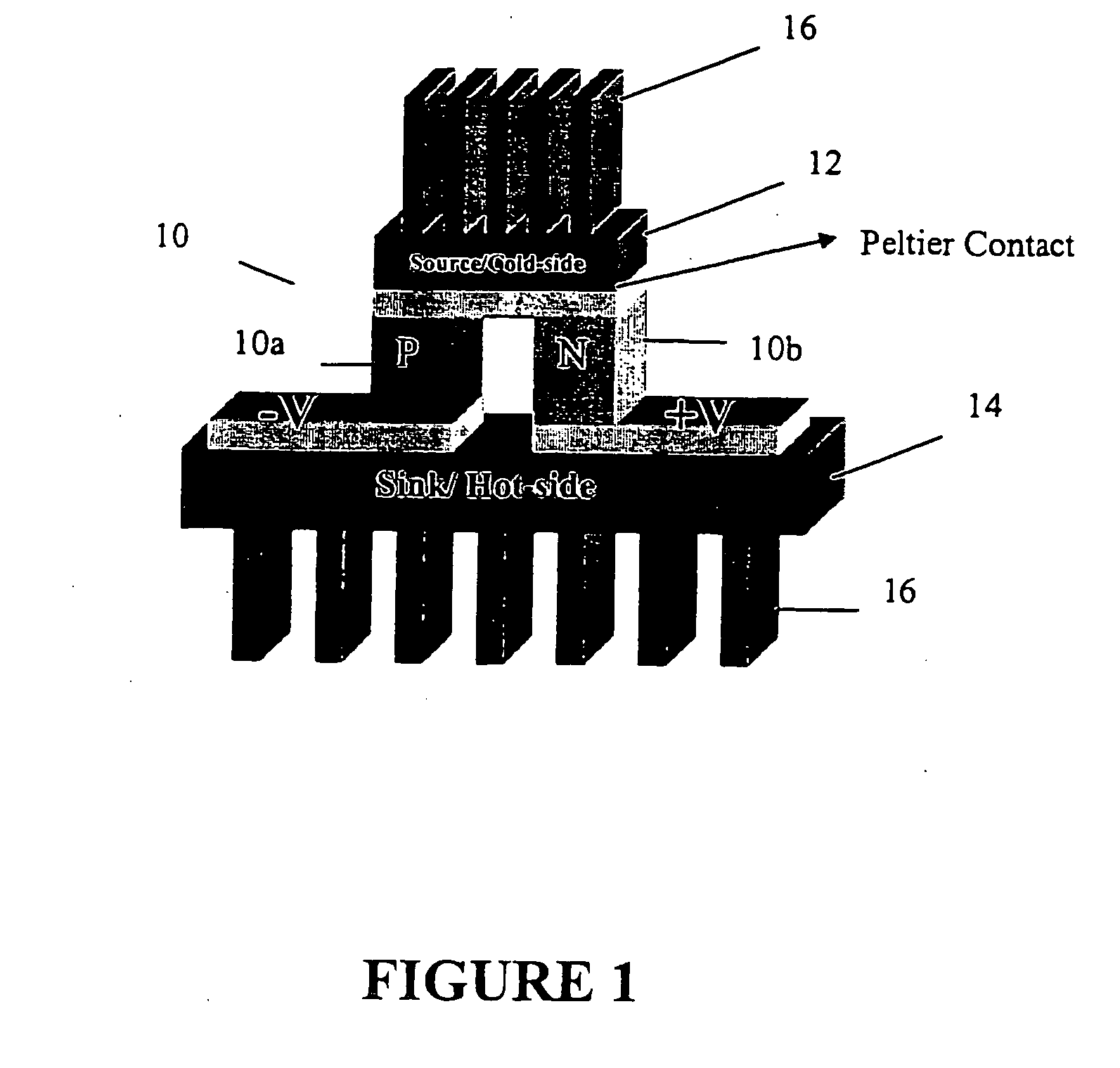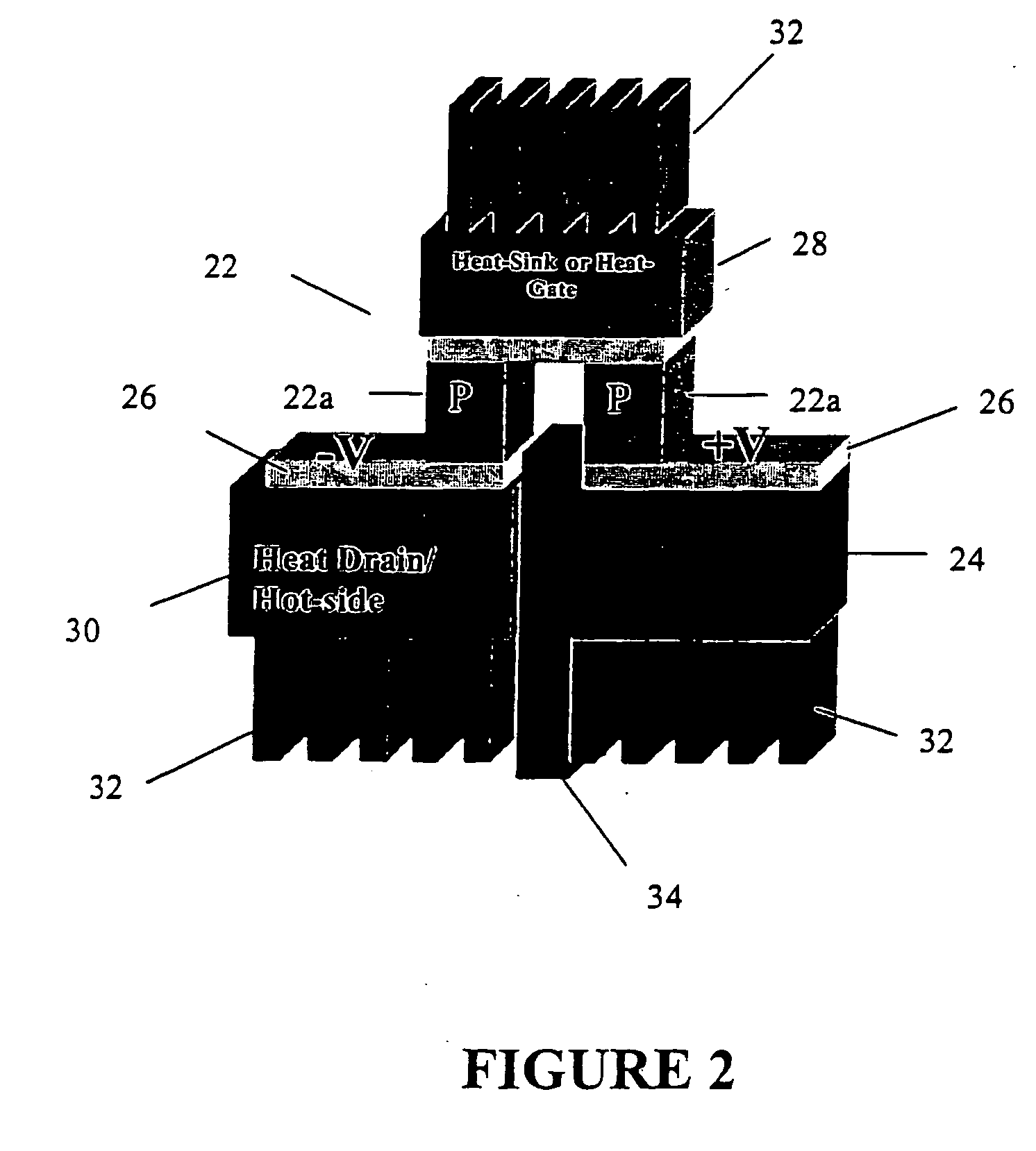Trans-thermoelectric device
a thermoelectric device and trans-thermoelectric technology, applied in the field of thermoelectric devices, can solve the problems of low efficiency of commercial thermoelectric devices, complicated manufacturing process, and low thermoelectric device cost efficiency, and achieve the effects of reducing the complexity of module assembly, improving thermoelectric material properties, and improving efficiency
- Summary
- Abstract
- Description
- Claims
- Application Information
AI Technical Summary
Benefits of technology
Problems solved by technology
Method used
Image
Examples
Embodiment Construction
[0022] Referring now to the drawings, wherein like reference numerals designate identical, or corresponding parts throughout the several views, and more particularly to FIG. 2, FIG. 2 depicts a trans-thermoelectric device 20 of the present invention. The trans-thermoelectric device 20 includes a three-thermal-terminal (T3) p-p couple element 22 shown in FIG. 2 as having a configuration for cooling a heat source 24. The trans-thermoelectric device 20, while shown having a p-p couple, could instead be an n-n couple element. In either case, the unipolar couple element 22 has two legs 22a of a same electrical conductivity type. As shown in FIG. 2, electrical terminals 26 connected to respective ends of the two legs 22a on one side of the unipolar couple element 22. The heat source 24 constitutes a first-temperature stage connected to one of the legs 22a. A heat sink / gate 28 constitutes a second-temperature stage and is connected to a side of the unipolar couple element 22 opposite the e...
PUM
 Login to View More
Login to View More Abstract
Description
Claims
Application Information
 Login to View More
Login to View More - R&D
- Intellectual Property
- Life Sciences
- Materials
- Tech Scout
- Unparalleled Data Quality
- Higher Quality Content
- 60% Fewer Hallucinations
Browse by: Latest US Patents, China's latest patents, Technical Efficacy Thesaurus, Application Domain, Technology Topic, Popular Technical Reports.
© 2025 PatSnap. All rights reserved.Legal|Privacy policy|Modern Slavery Act Transparency Statement|Sitemap|About US| Contact US: help@patsnap.com



